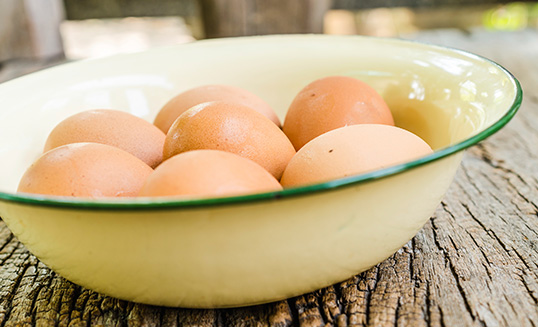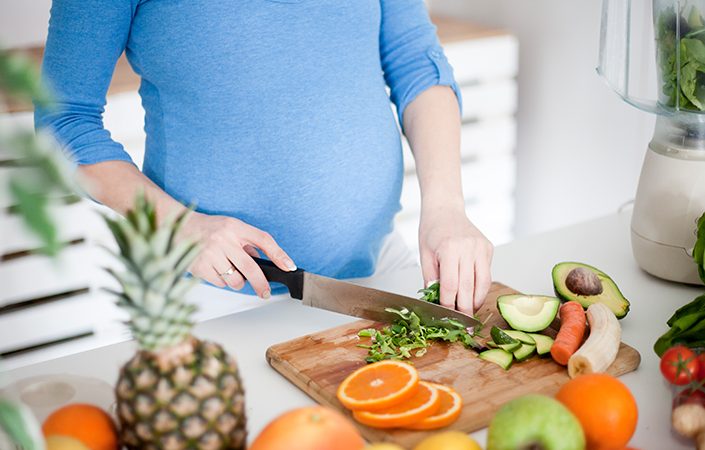
Protein is an essential part of a healthy diet, this macronutrient helps keep muscles strong and can also play a role in metabolism and hunger! Research has shown that getting more of this nutrient in your diet can do more than just help with weight loss. Keep reading to find out the many benefits of what more protein in your diet can do for you!
Benefit #1 – Eating Protein Helps You Burn More Calories
Eating a diet high in protein helps you burn more calories. Protein has a thermic effect in the body that means the body expends energy or burns off calories during the digestion process. Compared to other foods, like carbohydrates which have the same caloric value, protein actually has a greater thermic effect.
One study completed on ten normal healthy weight women, examined the energy expenditure of three meals of equal calories, including a high protein meal, a high carbohydrate meal and a high fat meal. The energy expenditure of the high protein meal was 261 +/- 59, compared to less than half the amount burned by the high protein diet with values of 92 +/- 67 and 97 +/- 71 kilojoules.
Benefit #2 – Eating Protein Reduces Appetite and Keeps Hunger in Check
Appetite and hunger reduction between meals are a main benefit of eating a high protein diet. One study, completed on twenty healthy women compared the effects of appetite, satiety and subsequent food intake when given the following snack items: high protein yoghurt, high fat crackers or high fat chocolate snack.
Results showed that eating the high protein yogurt snack led to the greater reductions in afternoon hunger versus the chocolate and also delayed eating by approximately 30 min compared to the chocolate and approximately 20 min compared to the high fat crackers. But that’s not all eating the high protein yoghurt snack also led to eating 100 fewer calories at subsequent meals versus the other snacks. Not only were the subjects more satisfied, they were also more fulfilled.
This research shows that eating less caloric, high protein snacks like yoghurt improve appetite control and satiety and decrease further food intake later on. How do you make this work for you? Eat smaller more frequent high protein snacks or mini meals, between larger meals. Fill up on high protein non-fat yoghurt, have a whey protein shake, or hummus with veggie sticks.
Benefit #3 – Maintain Lean Body, Burn More Fat
Eating a diet that is high in protein can help maintain and build lean muscle, but it can also help you burn off fat. Protein helps maintain lean muscle, while limiting carbs can help switch your body to burn off more fat, even if you’re following a calorie-reduced diet plan. A recent study showed that eating a high protein diet while on an energy deficit (a calorie-reduced diet) helped maintain fat free mass!
In a recent controlled trial, subjects were assigned to one of the following high protein diets – where protein was provided at 0.8 g/kg/d, 1.6 g/kg/d or 2.4 g/kg/d for 31 days. A 10-day weight maintenance period was followed by a 21-day reduced calorie diet of 40%. At the end of the trial, participants lost on average 3.2 kg of body weight during the energy deficit diet regardless of the amount of protein, but the proportion of weight loss due to loses in fat-free mass was lower and the loss of fat mass higher in those receiving 1.6 and 2.4 g/kg/d of protein. Additionally, those following the higher protein meals had a greater protein synthesis or muscle building response in the muscle, than those consuming the lowest amount of protein per day.
References
Campbell B, et al. ISSN position stand: protein and exercise. JISSN. 2007. 4:8.
Crovetti R, et al. The influence of thermic effect of food on satiety. Eur J Clin Nutr. 1998. 52(7): 482-88.
Ortinau LC, et al. Effects of high-protein vs high-fat snacks on appetite control, satiety and eating initiation in healthy women. Nutrition J. 2014. 13:97.
Pasiakos SM, et al. Effects of high-protein diets on fat-free mass and muscle protein synthesis following weight loss: a randomized controlled trial. The FASEB Journal. 2013. 27(9): 3837-47.
Written by Lauren Jacobsen, Nutrition Director




